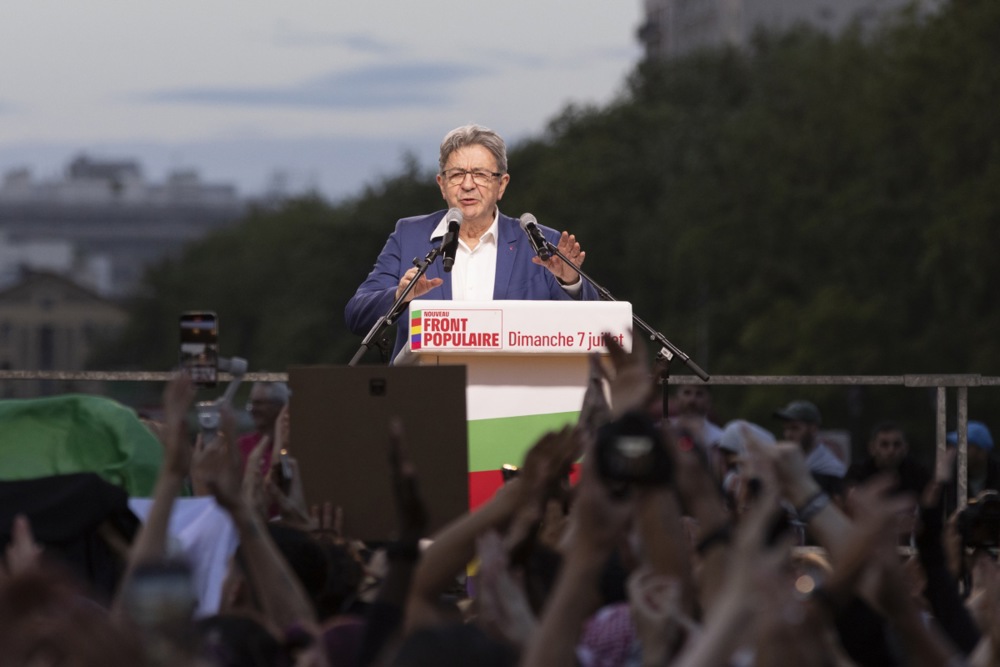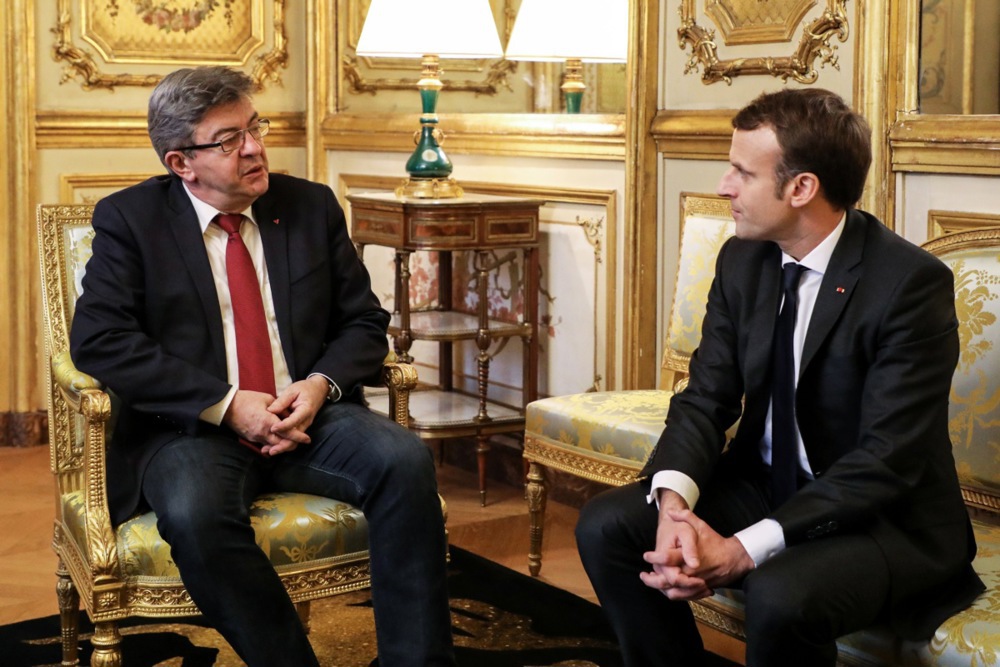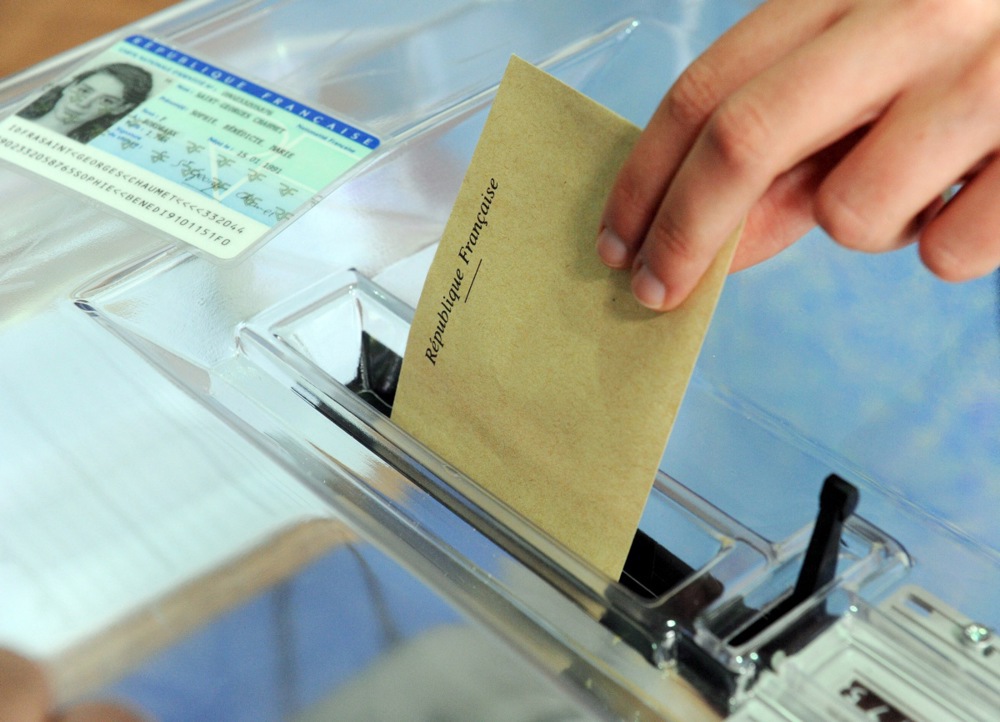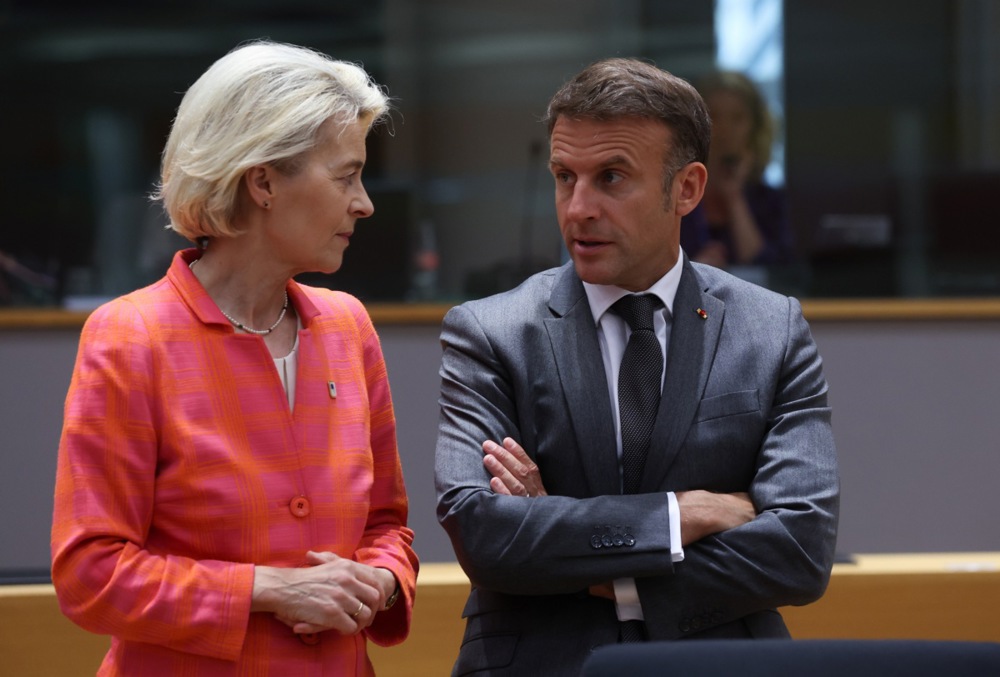Despite their significant gains across Europe, hard-right parties remain relegated to the sidelines within most Member States and the European Union’s institutional structures.
This “cordon sanitaire” strategy has effectively kept them out of key legislative roles, ensuring their influence remains limited.
In France, despite being the second-largest force in parliament with 126 seats, the National Rally (RN) failed to secure any key executive positions in the National Assembly’s bureau.
In contrast, the New Popular Front left-wing alliance secured a majority in the Assembly’s bureau, winning 12 of the 22 posts on July 19, effectively deploying their cordon sanitaire strategy.
The French Left has pushed President Emmanuel Macron to appoint a left-wing prime minister as well as continue to marginalise Marine Le Pen’s National Rally. https://t.co/u6928H9Ju2
— Brussels Signal (@brusselssignal) July 9, 2024
The RN is also absent from the parliamentary committee chairmanships, which play a vital role in the legislative process and in overseeing the executive.
On July 20, the President Emnauel Macron’s Renaissance party secured six committee chairmanships, while the left-wing coalition claimed the remaining two.
Marine Le Pen, the de facto leader of the RN, condemned such exclusion. “We respect democracy and we believe that all forces must be represented,” she said.
“Today, they monopolise positions through schemes. So we’re going to let them share them among themselves,” she added, referring to an alliance between the centre-right Renaissance and the Conservative Republicans for the vice presidency.
Nous sommes respectueux de la démocratie et nous pensons que toutes les forces doivent être représentées.
Aujourd’hui, ils s’accaparent les postes par des magouilles et des combines. Nous allons donc les laisser se les partager entre eux. pic.twitter.com/8dovX3FaNA
— Marine Le Pen (@MLP_officiel) July 19, 2024
For Yael Braun-Pivet, re-elected President of France’s lower legislative chamber, the exclusion of the hard-right was abnormal.
She said on July 20: “It is not normal that the RN does not have a vice president,” but assured that the voice of the party would be heard.
At the European level, the hard-right has also been sidelined.
On July 16 and 17, the newly elected members of the European Parliament blocked the hard-right groups from securing vice-presidencies and quaestor positions. Quaestors are elected to oversee administrative and financial matters directly affecting MEPs, among other duties.
The European Parliament responded to calls from within the EU to curtail the hard-right’s gains. Germany’s ruling left-wing parties demanded a cordon sanitaire, for example, against the newly founded Patriots for Europe group in the EP.
As a result, neither the Patriots for Europe, spearheaded by RN President Jordan Bardella, nor the Europe of Sovereign Nations (ESN) led by Alternative for Germany (AfD), gained vice-presidencies or quaestors in the new European Parliament.
The executive bureau of the assembly, with its 14 vice presidents and five quaestors, is crucial as it shapes the rules and budget of the new European Parliament.
The cordon sanitaire applied to the former EU Identity and Democracy (ID) group in the last legislature has now been extended to Patriots for Europe and Europe of Sovereign Nations blocs.
Despite being the European Parliament’s third-largest group with 84 members, Patriots for Europe saw their candidates — former Frontex chief Fabrice Leggeri of the RN and Klára Dostálová of Czechia’s ANO party, formerly aligned with the liberal Renew Europe group — excluded from vice-presidencies.
Instead, the Socialists and Democrats (S&D) secured five vice-presidencies and the European People’s Party obtained three.
Both the European Conservatives and Reformists (ECR) and Renew claimed two each.
Even The Left, a smaller group with 46 members, and the Greens, a slightly larger group with 53, managed to secure one vice president each.
The cordon sanitaire extended also to the parliamentary committee groups, which provide essential preparatory work for the EP’s plenary sessions.
The cordon sanitaire applied to the Identity and Democracy group in the last European Parliament has now been extended to the Patriots for Europe and Europe of Sovereign Nations blocs. https://t.co/Mb3wmQAYmJ
— Brussels Signal (@brusselssignal) July 12, 2024
The European Parliament has 20 specialised standing committees, each with 25 to 88 MEPs, a chair, a bureau and a secretariat.
These committees are responsible for drafting, amending and adopting legislative proposals and initiative reports.
Despite their relative size, hard-right groups failed to secure any committee chair positions, reflecting their overall marginalisation in the plenary assembly.
Eid Beircoukt, leader of the Greens, welcomed this strategy. For him, the hard-right was not a political force the EU could work with.
“The only you can get with the far-right is that they block things. I have never seen the far-right building something,” he told Brussels Signal on July 18 in Strasbourg.
In an interview with Brussels Signal, Enikô Gyori, MEP for Hungary’s Fidesz party, criticised this policy of exclusion, saying it disrespected the voters’ will. Sidelining hard-right politicians, once elected, was “undemocratic”, said Gyori.
Brussels must respect the weight of the new political groups and the will of the European people by rejecting calls for a cordon sanitaire around right-wing groups, @GyoriEniko tells @JavierVillamor.
Catch the full interview ?? https://t.co/WO1YDk6tTN #europeanunion pic.twitter.com/lIXz2X9pe8
— Brussels Signal (@brusselssignal) July 11, 2024
The concept of the cordon sanitaire originated in Belgium in 1989 as a means to isolate the hard-right Vlaams Blok party (now Vlaams Belang) in Flanders.
In French-speaking Belgium, the cordon sanitaire doubles as a media cordon that avoids engaging with hard-right representatives in interviews or debates.
This strategy of political and media isolation, while controversial, has persisted in Belgium, especially in Wallonia. Now it is being used within the broader EU framework as well to limit the influence of hard-right factions.
The effectiveness and fairness of this approach continues to spark debate, as these parties gain further electoral ground but remain institutionally marginalised.





